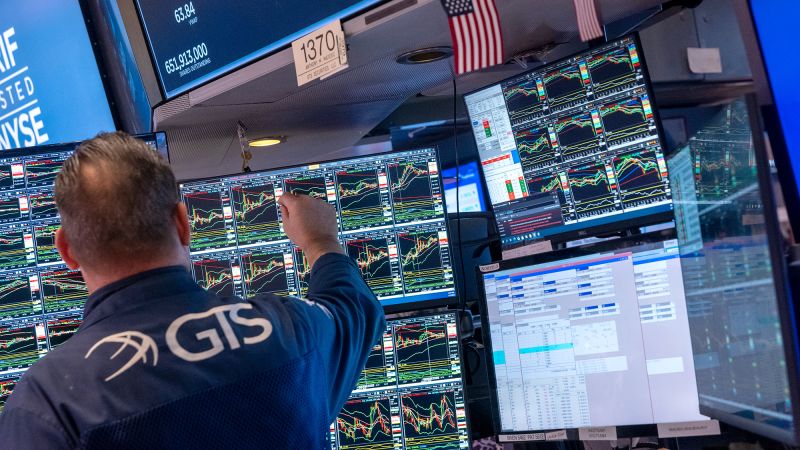
US stocks set for a major bounce back from their tariff doom spiral
CNN
After markets plunged over the course of the past three trading sessions, Wall Street investors were looking for any excuse to catch their breath.
After markets plunged over the course of the past three trading sessions, Wall Street investors were looking for any excuse to catch their breath. They seem to have found one – at least for now. Dow futures rose 700 points or 1.8% Tuesday. S&P 500 futures were up 1.3% and Nasdaq futures were 1% higher. Over the course of the past few days, stock prices got absolutely hammered as Wall Street grew fearful that President Donald Trump’s tariff policy would plunge the US and global economies into a recession. But after three days of market carnage, investors appeared to be seeking some buying opportunities. The price-to-earnings ratio of S&P 500 companies closed below 17 Monday – historically cheap, giving investors a chance to scoop up stocks they believe might be oversold. However, there’s no guarantee stocks will remain buoyant. After imposing across-the-board 10% tariffs on virtually all products coming into the United States Saturday, the Trump administration is set to impose significantly steeper levies still on dozens of countries. Those tariffs, which Trump has called “reciprocal,” although they are no such thing, amount to as much as 50% for a handful of countries – and tariffs on China could rise to about 70%.

Sales prices for sports teams are soaring to record levels. Here’s why, and what that means for fans
The Los Angeles Lakers topped their archrival the Boston Celtics with a record-setting $10 billion franchise price tag this week — just three months after the Celtics held the honor for the highest sale price for a professional sports team at $6 billion. The record may not last long.

Predictions from mainstream economists were dire after President Donald Trump launched his tariff campaign just a couple weeks after he began his second term in office: Prices would rise — sharply — they said, reigniting an inflation crisis that tens of millions of Americans had elected him to solve.

 Run 3 Space | Play Space Running Game
Run 3 Space | Play Space Running Game Traffic Jam 3D | Online Racing Game
Traffic Jam 3D | Online Racing Game Duck Hunt | Play Old Classic Game
Duck Hunt | Play Old Classic Game









